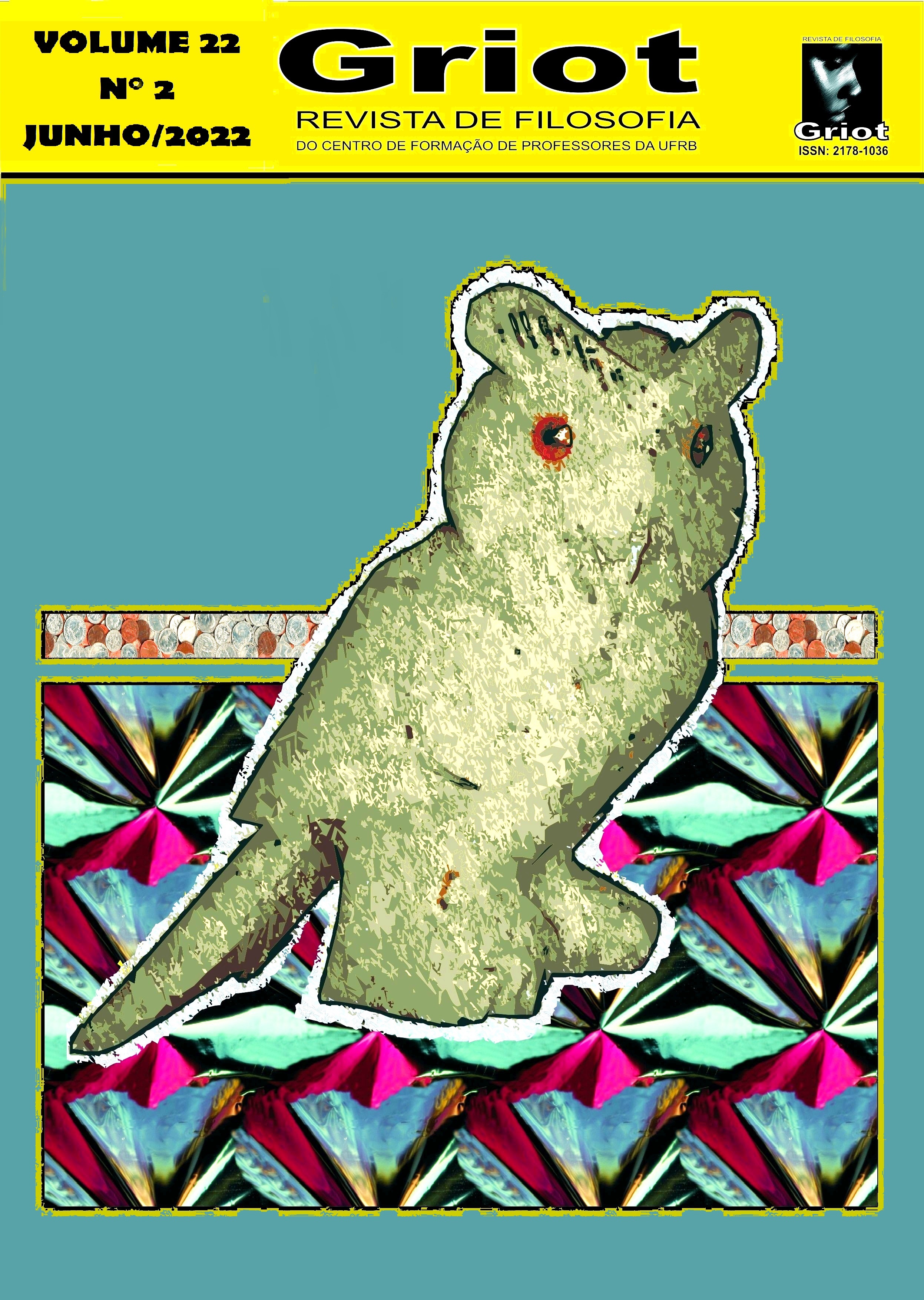The ambiguity of the ostensive definition and the convergence between Wittgenstein and Augustine
DOI:
https://doi.org/10.31977/grirfi.v22i2.2907Keywords:
Ostensible definition; Human language; Wittgenstein; Augustine.Abstract
The ostensive definition, based on ostensiveness, aims to indicate that human language is based only on gesture and indication. In this sense, such linguistic theory largely excludes the considerable eminence of symbology and internalization inscribed in the dynamics and interiority inherent to human language. Thus, the ostensible definition, with the intention of being a paradigmatic thesis about human language, would not explain or synthesize in itself all the richness present in human language. Before that, or this article intends to reflect on the ambiguity of the ostensive definition and the convergence between Wittgenstein and Augustine. Both, temporarily distant, do not endorse the ostensible definition as the basis of their theses about human language. Also, first, a concept about the ostensive definition will be presented. Deepen Wittgenstein's critique of such a linguistic concept and, finally, consider that Augustine did not have an ostensible definition as the basis of his conception of language.
Downloads
References
AGOSTINHO, Santo. A doutrina cristã: manual de exegese e formação cristã. Tradução de Nair de Assis Oliveira. São Paulo: Edições Paulina, 1991.
AGOSTINHO, Santo. Confissões. De magistro. Tradução de Alex Marins. São Paulo: Martin Claret, 2002.
BAKER, G. P.; HACKER P. M. S. Wittgenstein: Rules, Grammar and Necessity: of an Analytical Commentary on the Philosophical Investigations, Essays and Exegesis 185-242. Malden: Wiley-Blackwell, 2009.
DANCY, Jonathan; SOSA, Ernest; STEUP, Matthias (organizadors). A Companion to Epistemology. 2ª ed. Oxford: Wiley-Blackwell A John Wiley & Sons, Ltd., Publication, 2010.
GILSON, Étienne. Introdução ao estudo de Santo Agostinho. Tradução de Cristiane Negreiros Abbud Ayoub. São Paulo: Discurso Editorial/Paulus, 2006.
GLOCK, Hans-Johann (editor). A Wittgenstein Dictionary. Hoboken: Wiley-Blackwell, 1996.
KENNY, Anthony. História concisa da Filosofia Ocidental. Tradução de Desidério Murcho et al. Lisboa: Actividades Editorial, 1998.
MCGRADE, A. S. Filosofia Medieval. Tradução de André Oídes. Aparecida: Idéias & Letras, 2008.
MATTHEWS, Gareth B. Santo Agostinho: A vida e as ideias de um filósofo adiante de seu tempo. Tradução Álvaro Cabral: Rio de Janeiro: Zahar, 2007.
OLIVEIRA, Manfredo Araújo de. Reviravolta Linguístico-Pragmática na Filosofia Contemporânea. 3ª ed., São Paulo: Loyola, 2006.
SIMON, Blackburn. Ostensive Definitions. In: SIMON, Blackburn. The Oxford Dictionary of Philosophy. Oxford: Oxford University Press, 1996.
SLUGA, Hans; STERN, David G (organizadors). Cambridge company to Wittgenstein. Cambridge: Cambridge University Press, 1996.
STUMP, Eleonore; KRETZMANN, Norman (organizadors). Cambridge company to Augustine. Cambridge: Cambridge University Press, 2001.
WITTGENSTEIN, Ludwig. Investigações Filosóficas. Coleção Os Pensadores. Tradução de José Carlos Bruni. São Paulo: Nova Cultural, 1999.
WITTGENSTEIN, Ludwig. Tractatus Logico Philosophicus. Tradução de José Arthur Giannoti. São Paulo: Editora Nacional, 1961.
Downloads
Published
How to Cite
Issue
Section
License
Copyright (c) 2022 Clodoaldo da Luz

This work is licensed under a Creative Commons Attribution 4.0 International License.
The authors who publish in Griot: Revista de Filosofia maintain the copyright and grant the magazine the right of first publication, with the work simultaneously licensed under the Creative Commons Attribution 4.0 International License, allowing sharing and adaptation, even for commercial purposes, with due recognition of authorship and initial publication in this journal. Read more...









































































